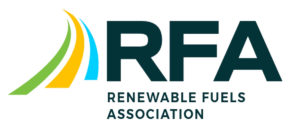As ethanol production continues to be decimated by the impact of the COVID-19 restrictions and supplies keep growing, oil state governors are asking EPA to waive renewable volume obligations under the Renewable Fuel Standard, an action that industry leaders say is both wrong and illegitimate.
 “Apparently toilet paper isn’t the only thing in short supply in oil states these days—clearly, these governors are experiencing an acute shortage of facts and reality too,” said Geoff Cooper, president and CEO of the Renewable Fuels Association. “It’s clear they know absolutely nothing about how the Renewable Fuel Standard actually works. They outrageously claim that a waiver is needed because of ‘depressed demand for transportation fuel.’ But because EPA translates the RFS into a percentage each year, the renewable fuel blending requirements already adjust in tandem with changes in gasoline and diesel consumption. So, if COVID-19 causes 2020 gasoline and diesel demand to drop 15 percent, for example, the renewable fuel blending requirements drops by the exact same amount.”
“Apparently toilet paper isn’t the only thing in short supply in oil states these days—clearly, these governors are experiencing an acute shortage of facts and reality too,” said Geoff Cooper, president and CEO of the Renewable Fuels Association. “It’s clear they know absolutely nothing about how the Renewable Fuel Standard actually works. They outrageously claim that a waiver is needed because of ‘depressed demand for transportation fuel.’ But because EPA translates the RFS into a percentage each year, the renewable fuel blending requirements already adjust in tandem with changes in gasoline and diesel consumption. So, if COVID-19 causes 2020 gasoline and diesel demand to drop 15 percent, for example, the renewable fuel blending requirements drops by the exact same amount.”
 American Coalition for Ethanol (ACE) CEO Brian Jennings pointed out a letter they sent to the EPA earlier this month which contends that EPA needs to adjust the percentage of renewable fuel volume obligated parties must use in 2020 upward to offset the nosedive in gasoline use as a result of coronavirus, otherwise EPA will be violating the RFS statute which amounts to an illegal waiver of blending volumes.
American Coalition for Ethanol (ACE) CEO Brian Jennings pointed out a letter they sent to the EPA earlier this month which contends that EPA needs to adjust the percentage of renewable fuel volume obligated parties must use in 2020 upward to offset the nosedive in gasoline use as a result of coronavirus, otherwise EPA will be violating the RFS statute which amounts to an illegal waiver of blending volumes.
“Not only should EPA dismiss the oil-state governors’ RFS waiver request, the Agency should act swiftly to increase blending obligations in 2020 because the economic fallout from COVID-19 is destroying demand for ethanol below statutory levels. ACE’s recent letter to EPA is the counterpoint to the governors’ RFS waiver request. Unless and until EPA increases the percentage of renewable fuel volume obligated parties must use in 2020, it is already handing oil refiners a nationwide waiver illegally,” said Jennings.
The governors of five oil states – Texas, Oklahoma, Wyoming, Utah and Louisiana – have asked the EPA to waive the RFS.

